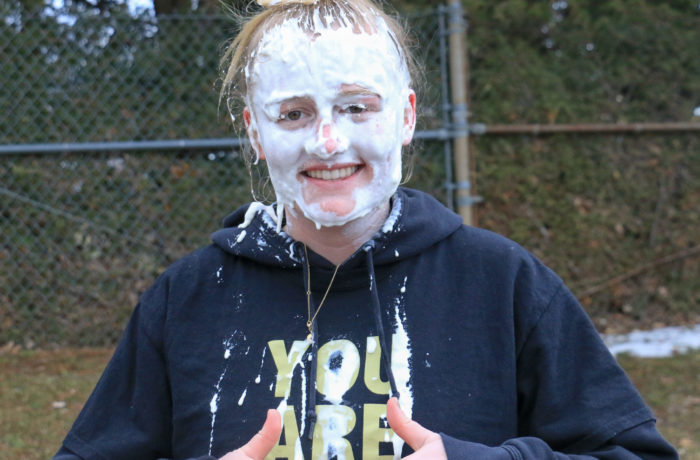
Three new classes are being offered this semester weeks after students came back from break. This is part of a new series of “Pop-up” classes that are focused on bringing the discussion of current world issues front and center in classrooms.
These classes are “to create an opportunity for a short-term learning experience in response to a current, unfolding event or an identified need or interest that isn’t being accommodated in the traditional curriculum or programming,” said Karen Talentino, vice president for academic affairs, one of the first people to suggest the idea.
Organizing for Social Change, White Privilege and Black Lives Matter are the first classes being offered in what professors and the administration hope to become a lasting tradition. Classes will be one credit pass/fail for an hour and a half for four weeks. The classes are intended to offer information on current issues and encourage an open dialogue between students.
“It’s a subject matter that I don’t think there would be an opportunity to focus on during normal classes and it is something I am interested in,” said Caitlin D’Amore, ’18, who is excited to take White Privilege.
“Bennington College, for example, offered a pop-up class on ‘the Semiotics of Trump’ during the presidential campaign. I was intrigued by the idea of giving students an opportunity to discuss and explore a topic of current interest, with a faculty mentor or moderator,” said Talentino. “Given the significant level of frequent change and controversy in our country these days, I think the timing is ideal for this type of class.”
With the events of racial bias and the reaction of students last semester professors and staff thought these classes could be a good response as another part of the diversity initiatives that are also underway.
“Mo, Patty, Kamoi, Trish, Rai and myself are all doing a lot of work right now with diversity initiatives with the College – initiatives to address the lack of diversity at this college. We are also considering whether our community is truly an inclusive and just one,” said Katherine Kirby who is teaching Black Lives Matter. “As a group we thought of these topics as being an important part of the conversation that should happen on campus, in part spurred by what the students were asking for last semester.”
Talking about these issues in classrooms may engage people who might not ordinarily be involved with clubs related to these topics, or be vocal at the events surrounding these topics.
“I’m hopeful that these classes will draw a crowd of people from diverse perspectives, so that we can really have a productive conversation and come to some shared understandings, but I don’t know,” Kirby said. “The history of any time that we have tried to have conversations around these topics, especially the topic of racial justice, it ends up being the same crowd of people.”
Though Kirby stressed the conversations were always good and productive, she hopes that having the conversations in a classroom setting will help open up a respectful conversation with diverse perspectives.
These new classes seek to open up the dialogue on campus further, from the style of class to the teaching. All pop-up classes will be team-taught, allowing professors to infuse their skills when taking on these topics.
“One thing to me that is really exciting is that all of these courses are team taught,” said Patricia Siplon, who is teaching Organizing for Social Change. “So, all of them will be coming in with a double perspective right off the bat.”
Faculty and staff have all been welcomed to propose a pop-up course about a subject in which they have the background to teach, according to Talentino. Students can take up to two a semester, and apply four to graduation. Faculty and staff will be monitoring interest and satisfaction from these classes to use in future planning.
“I hope that faculty and staff will be creative in the development of these classes,
and that students will take advantage of the unique opportunity to engage in facilitated learning about topics that are of current interest and importance,” Talentino said.


